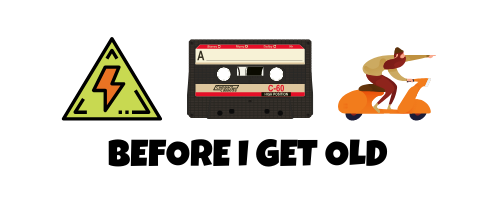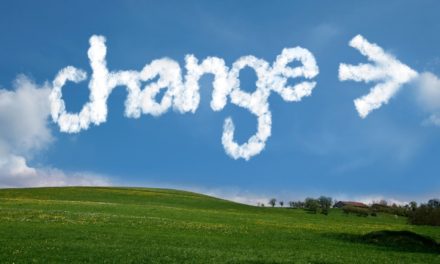There’s been a lot in the news recently about mental health. And specifically, young men’s mental health. Actually, young women’s mental health too, but after fifty-odd years on the planet I still find women more complicated than Rugby Union, so that one might have to wait a while.
It seems crazy that in a world more connected than ever, where we’ve had relative peace and stability for 75 years that a generation of young men should be struggling. But the truth is that roles have changed beyond recognition in that time and the only thing that’s changed more is the number of methods of expressing who you are.
Back in the early 20th century being a man was easy. You went to school for a bit, learned to smoke and fasten a waistcoat, took a job in a dangerous profession, got married, had kids and, if the machinery in the mill hadn’t killed you the inevitable, impending war would.
By the time we got to the second world war there was an increased chance of surviving the first six weeks as technology allowed us to meet our deaths hundreds of miles into enemy territory. I still love the idea that we took a bunch of Lincolnshire teenagers who’d never ridden anything faster than a bicycle or been further than the next village. With only rudimentary training we then gave them a Lancaster bomber full of high explosive and expected them to find and destroy a factory no bigger than a football pitch…in the dark…while being shot at…despite having no idea where Essex was, never mind Frankfurt.
Since that war finished being a young man became much less deadly, but a lot more complex. In the pre-war days women got used to bringing up families alone because the men had been shot in the fox-hole. There was no mention equality or things like that because before long, most husbands would be missing a significant chunk of his torso or missing in action.
By the 1950s, in the absence of conflict, these men started hanging around once the kids were born, showing little sign of dying, despite the smog, tobacco smoke and encouragement to ride a motorcycle. Mostly, they kept quiet because, if you’d spent your teenage years staggering across Normandy, shooting everything that smelt of sausage, you’d probably want some time to reflect on it too. Male mental health in the 1950s would have been a huge can of worms that was probably best left unopened.
Instead they bottled it up, got jobs and had a reasonable expectation of keeping them for life. For the first generation in years both men and women had half a chance of reaching old age together, meaning their kids were raised in stability, without fear of being sent down off to war.
In turn these kids came to be the generation known as ‘baby-boomers’ who hardly killed anyone, worked hard, raised their kids to be even more rounded and considerate human beings and everything seemed hunky dory.
The thing is… most animals need a bit of conflict and humans are no exception. In the absence of an enemy based on jingoism and national stereotypes we tried alternatives. Football seemed promising for a while, but then we realised it’s only a game. Music-based youth cults were always a non-starter and, as we all got a little older the urge to fight anyone drifted away.
The other thing that’s changed in this new world of increasing life expectancy is that young-uns have to wait longer to be accepted and the older folks preferred the idea of staying young. Back when your old man was buried in Normandy or missing a head, a young man assumed his responsibilities early in life. But now an average teenager can rely on at least two generation of smart-alec seniors to ‘guide’ them on their way. And worse, at least one of those generations probably lived a life more hedonistic and less structured than our hapless teenage hero. At some point in the 1980s came the invention of the mid-life-crisis and that’s where it all went seriously wrong.
If all that wasn’t enough the rules of engagement for pairing off have got a lot more complicated. Back in the 1970s you only needed a window cleaner’s ladder and a cheeky attitude to be having sex with everything. Even Benny Hill got more action than most 21st century teens.
In the 1980s you needed the right car and a perm or mullet (depending how far south of Coventry you lived). But now in the 2020s, you need the right clothes, smell, haircut, phone, social media profile, Instagram likes and who knows what else. Plus, should you get successful, the bar for what counts as sex these days has got a lot higher. If you grew up watching the kind of adult content that most teenagers do now, you’re not expecting the laydeez to be happy with a clumsy under-the-jumper fumble, sticky fingers and a mumbled apology. You’ll be expecting to do it for hours, in many positions while grunting a script first written in the seedier end of 1980s Hollywood and revisited unconvincingly by unconvinced teenage-lovehunters ever since.
It’s no wonder they’ve got problems.
Ok, stop. Please. Stop. And yes, I know I’m being terribly flippant about a subject that is horrific, debilitating and crippling to those who are suffering. But the point is this. Very few of those affected here started off like this. Many are suffering but in many cases this is a condition caused by wonky neurochemistry, knocked off-kilter by events and not infection or disability. We, as a society have to look at the problem differently and take some responsibility for fixing it.
For example, which bright spark decided that the correct approach for society to take about alcohol was that getting utterly, utterly rat-legged at every opportunity was the behaviour of the aspirational good guys, while staying sober, cohesive and learning to be interesting by being smart or funny or considered was somehow boring?
Pretty much every advertising message we see suggests some kind of sexual conquest either overt or covert, which is weird, because – can we be honest here – once you get beyond about 25, there are many more things in life a lot more rewarding than sex.
Who decided that being cool was more desirable than being smart and, come to think of it, who the heck decides what is genuinely cool anyway? At the risk of sounding like a dowdy-old-fekker, one of the more curious things the second 25 years of my life taught me was that I generally have a lot more fun and enjoyment when I’m sober, because then I do the things like motorcycling, thinking and intellectual lion-taming that become a lot more dangerous when drunk.
Am I missing something here? Are we no longer capable of deciding this for ourselves and isn’t the whole point about being cool that it happens by actually being different from the crowd and not being told what to do?
Maybe one tiny part we mid-life mavericks can play is to grow-up, act like role-models and work out what a meaningful middle-age looks like instead of trying to recreate our early years or just carry on being an idiot. Former US President Barack Obama is probably the best-known living example of this new role model. Dignified, confident, aspirational and absolutely an inspiration to anyone.
Just supposing we could make our middle-age lives as aspirational as Obama? What’s stopping us? Most of us have the jobs, lifestyle and confidence that we lacked at 25? Instead of worrying about getting older let’s embrace what we are becoming and enjoy it.
That way we can show the nippers by example that we are confident enough to be who we are, regardless of our success at DIY, dancing or going more than 90 minutes without needing a pee. Maybe if we can build an alternative aspiration to mindless marketing alcohol-fuelled ‘cool’, then, a portion of them will feel confident enough to nurture their own way of rebelling against the march of marketing too.
Obviously, the caveat here is that I understand just how superficial this post has been. I’m not even as stupid as I look and clearly, mental health challenges are borne from a hundred different causes. I don’t want to trivialise anyone’s struggle with these issues, but I do feel that some of the above might just make a teeny difference to a small number of people and who knows where that might cascade down to.
Good luck fellas, we’re all thinking of you.










